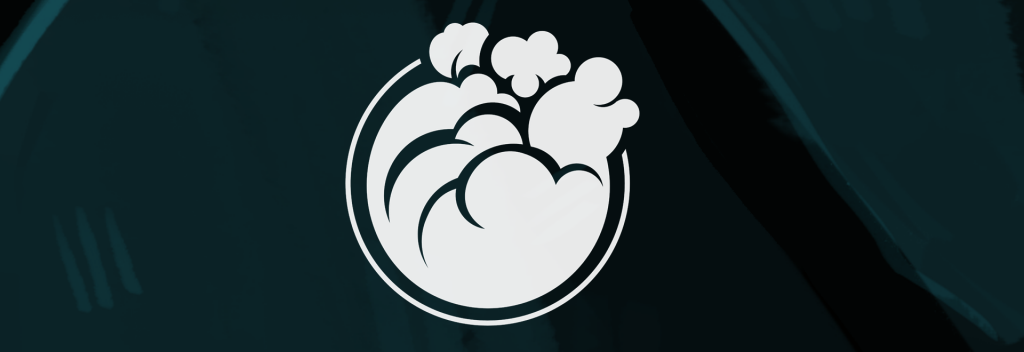
Ideas are seeds, not jewels
There’s not much point blogging during GDC – only like six people will ever read this – but it’s timely today and I keep meaning to blow the dust off this thing.
Failbetter, the company I founded and later tearfully sold, is concluding a very successful Kickstarter for their next project, Sunless Skies, a narrative game set in a mythic version of space where it’s possible to take a train between stars.
inkle[1], the company that I’ve heard described as having ‘a very friendly rivalry’ with Failbetter, have just announced their next project, Heaven’s Vault, a narrative game set in a mythic version of space where it’s possible to walk between moons.
So before I go any further, OBVIOUSLY NO-ONE HAS COPIED ANYONE ARE YOU KIDDING ME. But I’ve talked since yesterday to two people, one of whom’s been all ‘olol good thing Failbetter got theirs in first’ and the other who’s been all ‘omg Failbetter must be so gutted’. Well, I wouldn’t be surprised if there was at least one brief DOH! at each company when the other announced their project, but it isn’t a bad thing for either of them. I want to talk about why, because it ties into a thing I often hear from other indie devs.
The thing I hear is this: ‘oh shit we’ve been working on our survival game about [radioactive pasta eels] for [nine months] and now [Eel Leg Studios] has announced their survival game about [radioactive pasta eels] is coming out [next month] and we’ve been BEATEN TO THE PUNCH’. It’s something that at least one person would say at Failbetter, when we were working on SS and Zubmariner, every time anyone announced a sailing or a submarine game. And it is very nearly always nothing to worry about, for two reasons.
First, ideas are rarely the important bit. Every halfway successful game dev has more ideas than they can ever use. Most excellent games are the consequence of excellent execution. And it’s not just quality: it’s about direction. Ideas are seeds, not jewels. They aren’t unique things that one person will possess – they are promiscuous in their extent, and their roots and their branches will proceed in any number of different directions. Your crafting-focused survival game about [radioactive pasta eels] with its strong procedural puzzle mechanics will be very different from that other studio’s narrative-centric [radioactive pasta eels] game with its unique art style. There are a multiplicity of points of possible resemblance between ideas, and an infinity of possible differences.
(I recently got very worried that some of Cultist Simulator‘s mechanics resembled existing mechanics on a client project; I thought about pulling out. My better half convinced me I was being a paranoid idiot, pointed out that only another designer would really even notice the similarities, and the differences outnumbered it. If you’re an artist, you’ll worry that your art style is no longer unique; if you’re a writer, you’ll worry that your plot has been gazumped. Relax. There’s room.)
But second, it’s possibly good for you, if you’re an indie dev. I mean if Ubisoft announce Far Radioactive Eel Cry and Activision announce Call of Duty Radioactive Eel Warfare, probably someone is going to be very cross. But people at the indie level like me and, hypothetically, you, can always use a little more attention. If a journalist writes a piece contrasting your R-E-P game with someone else’s Eel Pasta Quest, then even if you grump at some of their conclusions, you’ve got press. If an outlet does a piece on the recent rush of R-E-P games and asks you for your opinion, great! If you find you’ve spawned a Steam tag, wonderful!
I have zero doubt that Sunless Skies and Heaven’s Vault will both be excellent games, and I imagine they will have a minority of features in common. But the same is true of gin and coffee, and the existence of one is not an existential threat to the other. It’s rare for an indie studio to gazump another, and if you’re working on a radioactive eel pasta game right now, it’s cool! let’s start an eel pasta mailing list.
[1] guys when you stylised it lower-case were you DELIBERATELY TROLLING everyone who ever starts a sentence with it



Excellently and comically put. Good luck to all indie devs, frankly. I would only worry if someone on one project recently moved to the other, shortly before the suspicious similarities arose. Even then, assuming your optimistic reasoning above is how things work out in the indie industry, all that does is bring potentially more press for both, albeit a potentially damaged career for that hypothetical someone caught in the middle.
Have you ever seen indie outfits sue one another? I would imagine that’s an unwritten no-no with no winners, as both their reputations risk being tarnished. One for plagiarism, the other for stomping out a fledgling company over what may be relatively trivial seeds, to borrow your expression.